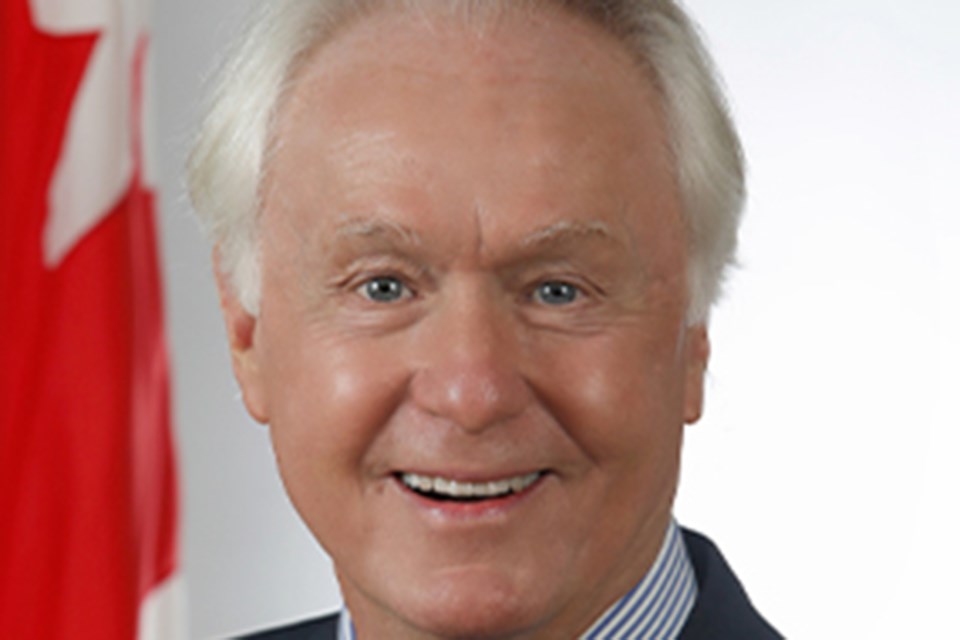OLDS — Senator Douglas John Black, one of two elected senators from Alberta, says he plans to push for improved internet broadband for rural communities, including this district.
Black recently conducted a virtual tour of 10 Alberta communities, speaking to business owners, educators and other stakeholders, including in Olds on Nov. 2 during the last day of the tour.
Improving internet access in rural communities will be vital during the anticipated recovery following the COVID-19 pandemic, he said.
“There are real problems with broadband internet service in the rural areas,” he said. “We are getting cut off, calls are being dropped. In this day and age, so much has gone online. People are working online. People are going to school online. People are shopping online.
“We cannot hope to recover a strong economy outside the big cities unless we have a very well funded plan to ensure that we treat internet as an essential service and provide it to rural Albertans.”
During his discussions with the chamber of commerce and other business owners in Olds, Black said he will be looking into the possibility of COVID-19 vaccines being made at an existing soft gel facility in town.
“It occurred to me today in my conversations, why couldn’t that facility, which apparently has some very, very high technical capacities, why couldn’t it be used to manufacture COVID vaccine? ” he said. “Wouldn’t it be exciting to have the Alberta vaccine manufactured in Alberta for Albertans?
“So I’ve undertaken to see whether there is something there. That’s the kind of thing Olds and the rest of Alberta needs to be doing, finding new opportunities, which we will do.”
Black says his discussion with Olds College president Stuart Cullum was very informative and reinforced his belief that the renowned agricultural school will be vital to the province’s economic recovery following the pandemic.
“The work they are doing in smart farming and smart agriculture and agri-business is globally important,” he said. “I’m encouraging them to keep on that role because Alberta’s recovery in large part now depends on agriculture. We can’t do enough in terms of research and support for that industry.
“Olds College is a key part of the solution. I had a very good strategic conversation with the president and I’ve offered to be of help wherever I can in advancing that interest.”
Black said during his tour he heard from many business owners that they continue to struggle during the pandemic.
“The nasty combination of the oil and gas downturn and COVID has hit Olds hard,” he said. “The service business in particular has been hard, hard hit. In my conversation with the chamber of commerce, I’ve come to understand that there is a lot of anxiety and a lot of trouble in the small and medium size business community.
“They are hanging on and their resiliency is remarkable, but this has to end sooner rather than later in order for them to continue business.”
Although the federal government has been “very generous in terms of supporting workers through this challenge” during the pandemic, much more needs to be done to help medium and large businesses, he said.
“While I support the government’s support of employees across Canada, the government has not been very effective, I don’t believe, at supporting businesses,” he said.
“A lot of large and mid-sized businesses have been excluded and I think this is not a smart thing. If those businesses don’t survive, when the wage supports stop, who is going to employee these people? I’m worried about that.”
More is going to have be done to provide mental health support during the pandemic, he said.
“I have seen a very real uptick in challenges created by mental health,” he said. “I believe that more is going to have to done on that front in the immediate future. I will be calling for more commitment on that front.”
Only the approval and distribution of a vaccine will be a long-term solution to the COVID crisis, he said.
Black says he plans to present the findings of his virtual tour to the Senate in the coming weeks.
Black, 68, won the senate nominee election in 2012 and was appointed the following year by then-Prime Minister Stephen Harper.



